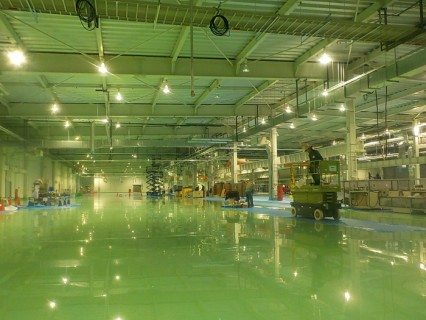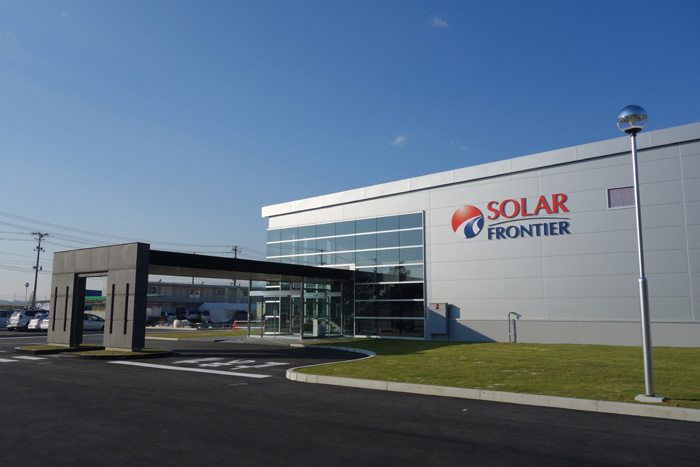The Tohoku plant is a manufacturing facility that uses commercial copper indium diselenide (CIS) modules to produce solar panels in Miyagi, Japan. Solar Frontier completed construction on the facility in April 2015 and it is the developer’s fourth production plant in the region.
The CIS production lines at the Tohoku plant were also upgraded by using advanced technology developed by R&D. The facility uses CIS thin-film modules, rather than crystalline silicon modules, which produces module conversion efficiencies of over 15%. Therefore, the CIS modules can generate a higher energy output or kilowatt/hour in real-life conditions.
In comparison to Solar Frontier’s 900-MW Kunitomi factory, the Tohoku plant will only take one-third of the time to make a CIS solar. It also requires only two-thirds of the investment and manpower per megawatt.
Reported in 2014
Advanced CIS production lines in Tokyo feature in the new Solar Frontier plant as construction proceeds
Solar Frontier announced today that it is installing newly enhanced proprietary CIS production lines at its upcoming production facility, Tohoku Plant. Based on established technology at Solar Frontier’s Kunitomi Plant, the improved production lines will enable best-in-class production costs with new product advantages.
On track with its planned construction schedule, the plant is to be completed in March 2015. The Tohoku Plant features upgrades from Solar Frontier’s existing proven production lines using advanced technology developed in R&D at its Atsugi Research Center (ARC). The lines will enhance Solar Frontier’s leadership in CIS as well as help further the adoption of thin-film technology around the world. The plant will also drive the availability of distributed energy solutions in Japan, especially for the residential and commercial markets in the Tohoku area.
Satoru Kuriyagawa, Chief Technology Officer of Solar Frontier, commented: “The Tohoku Plant manufacturing process leverages cutting-edge technology developed at our ARC, partnered with proven line technology from our Kunitomi Plant to deliver significant enhancements. For example, precise processes such as the formation of the CIGS absorption layer (the heart of CIS thin-film modules), the patterning process, and electrode formation are now faster and can be controlled more accurately. With significant advances in all areas, this factory delivers faster, more compact, and more efficient production, in turn enabling significant cost reductions.”
The new lines will also enable important product upgrades, including adjustments to the voltage and current of the modules. The upgrades will enable more freedom in system design and make the placement of cables and other wiring more efficient. Also, leveraging Solar Frontier’s world record-breaking 20.9% conversion efficiency technology, modules coming off the mass-production line will achieve efficiencies of over 15%.

These product improvements build on the performance advantages of CIS, a technology that generates more kilowatt-hours per kilowatt-peak in real-world conditions compared to crystalline silicon panels. Generating more kilowatt-hours per kilowatt-peak installed is a key factor in the financial success of residential rooftop and commercial projects. Whether partially covered by shadow or when operating at higher temperatures, Solar Frontier-manufactured CIS modules show more robust, stable power output than crystalline silicon panels in real operating conditions.
Tohoku Plant will become a model plant for future global expansion, and Solar Frontier is currently assessing possible sites for production facilities outside of Japan in line with worldwide demand growth and Solar Frontier’s mid-term growth plans.
